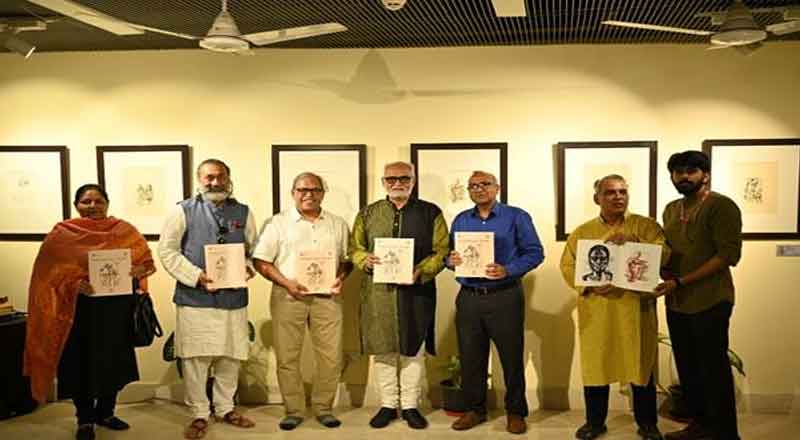- Sunetra Pawar, the wife of Ajit Pawar, has been given a clean chit in the controversial MSCB case, which allegedly involves a staggering Rs 25,000 crore.
- The closure report issued by the EOW asserts that there was no evidence of criminality or wrongdoing in the transactions linked to Sunetra Pawar.
- This finding provides a significant boost to Sunetra Pawar’s credibility and political standing, particularly as she emerges as a surprise candidate for the Baramati Lok Sabha constituency.
- Despite the complexity of the financial dealings, the EOW found no legal irregularities, bolstering Sunetra Pawar’s position in the contentious case.
- However, the timing of the clean chit has drawn sharp criticism from opposition factions.
- Opposition leaders have seized upon the notion of a “washing machine” tactic employed by the BJP.
In a recent development that has sent shockwaves through Maharashtra’s political landscape, Sunetra Pawar, the wife of Maharashtra’s Deputy Chief Minister Ajit Pawar, has been given a clean chit by the Mumbai Police’s Economic Offences Wing (EOW) in the controversial Maharashtra State Cooperative Bank (MSCB) case, which allegedly involves a staggering Rs 25,000 crore. This exoneration comes amidst heightened political tensions and accusations of bias, further complicating an already intricate web of familial and political alliances.
The closure report issued by the EOW asserts that there was no evidence of criminality or wrongdoing in the transactions linked to Sunetra Pawar. Notably, the report emphasizes that the MSCB incurred no losses due to loan approvals or the sale of the Jarandeshwar Sugar Mill, a central point of contention in the case. This finding provides a significant boost to Sunetra Pawar’s credibility and political standing, particularly as she emerges as a surprise candidate for the Baramati Lok Sabha constituency, a stronghold of the ruling NDA coalition.
Sunetra Pawar’s candidacy for the Baramati seat adds another layer of complexity to the unfolding narrative. Set against Sharad Pawar’s daughter Supriya Sule, her political aspirations underscore the familial and political intricacies inherent in Maharashtra’s political landscape. With familial ties intersecting with political ambitions, the stakes are higher than ever, further exacerbating tensions between rival factions.
Delving into the intricacies of the case, the closure report sheds light on the transactions under scrutiny. Sunetra Pawar resigned from her position as director of Jai Agrotech in 2008. Subsequently, Jai Agrotech invested Rs 20.25 crore in the Jarandeshwar Sugar Mill. The mill was later acquired by Guru Commodity through an auction for Rs 65.75 crore, subsequently leased to a company with ties to Ajit Pawar’s relatives, including Rajendra Ghadge.
Despite the complexity of these financial dealings, the EOW found no legal irregularities, bolstering Sunetra Pawar’s position in the contentious case. However, the timing of the clean chit has drawn sharp criticism from opposition factions, who argue that such outcomes validate their accusations of political interference and manipulation by the ruling party.
Opposition leaders have seized upon the notion of a “washing machine” tactic employed by the BJP, alleging that leaders accused of wrongdoing are absolved of charges upon aligning with the ruling party. These narrative gains traction as prominent figures, including Ajit Pawar himself, have transitioned to the BJP-led alliance, raising questions about impartiality and due process.
The Shiv Sena, a key ally in the Maharashtra government, has openly contested the clean chit, further intensifying the political storm surrounding the case. Party leaders have framed the EOW’s decision as confirmation of their longstanding grievances against the BJP’s purported misuse of investigative agencies for political gain.
As the Baramati Lok Sabha constituency gears up for elections, scheduled for the third phase on May 7, the fallout from Sunetra Pawar’s exoneration promises to reverberate across Maharashtra’s political landscape. With accusations and counter-accusations flying, the integrity of the investigation and the impartiality of law enforcement agencies hang in the balance.
The outcome of this high-stakes electoral contest, coupled with the broader implications for governance and accountability, underscores the critical intersection of law, politics, and public trust in contemporary India. Only time will reveal the lasting repercussions of this contentious chapter in Maharashtra’s political saga, as the battle for transparency and accountability continues to unfold.
(With inputs from agencies)





